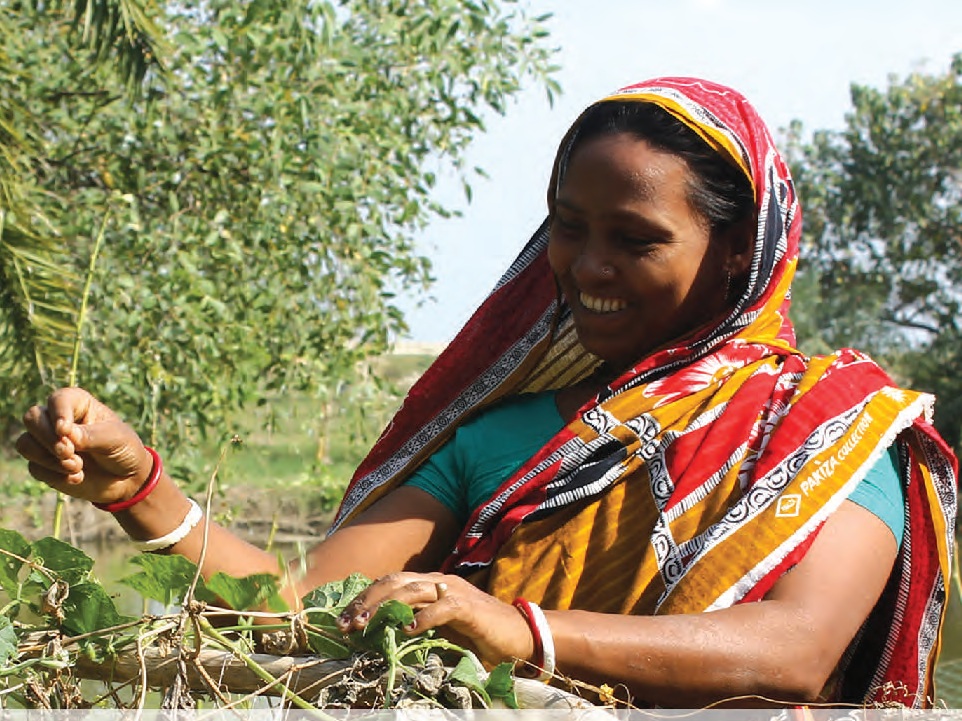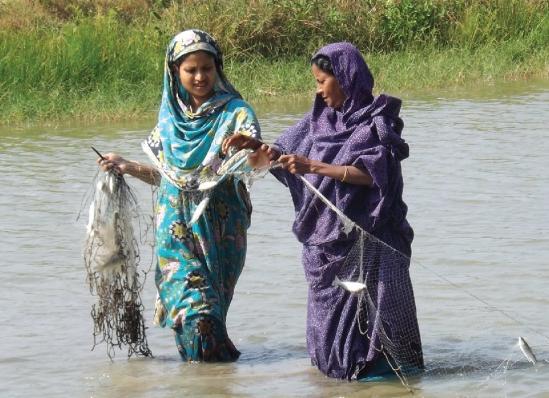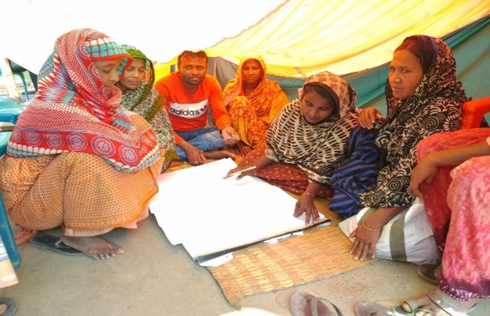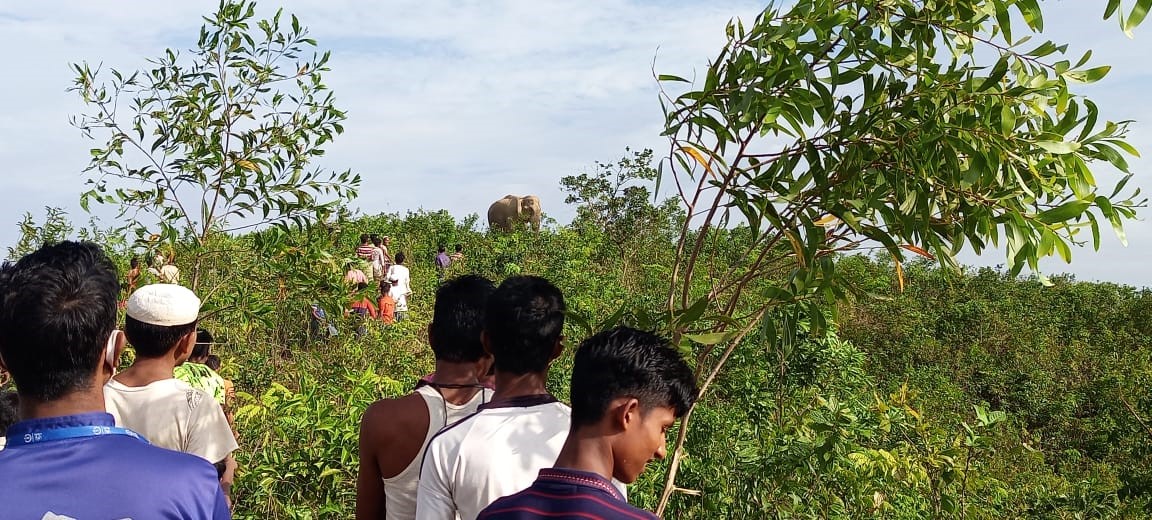Social Empowerment: Foundation for effective governance of natural resources
More than 400,000 people living near the mangrove forests of the Sundarbans in Bangladesh depend on forests for their livelihoods. Unfortunately, the health, wellbeing and quality of life of these people are often affected by recurring cyclones and poorly managed natural resources.
Thanks to the “Increasing income of female-headed families to reduce dependency on Sundarban resources project”, a coastal ecosystem project that utilises participatory analysis methods, communities were asked to highlight and identify the problems they face, and to share ideas on strategies that might improve their lives.
Communities identified saltwater intrusion, intensive shrimp farming and the lack of community access to shared resources as some of the biggest issues, and subsequently worked with project managers to come up with solutions to address them.
As a result, hundreds of people in these disaster-prone areas now have access to clean drinking water.
Irrigation in the dry season has also improved the livelihoods of more than 100 farmers and new aquaculture and agriculture techniques have provided new sources of nutrition and additional income.
The participatory approach builds on the concept of social empowerment, and is central to Mangroves for the Future’s (MFF) resilience framework – an approach that recognises that effective and sustainable ecosystem management solutions must engage individuals and communities.
Social Empowerment
Social empowerment is understood as the process of developing a sense of autonomy and self-confidence, and acting individually and collectively to change the social relationships, institutions and discourses that exclude communities and keep them in poverty.
In conservation, social empowerment serves as an important foundation for good governance of local natural resources. Given that opportunities for social empowerment are shaped by prevailing governance structures and systems, it is important to take into account the socio-economic and environmental context during the development planning process.
A coastal initiative, MFF aims to effectively strengthen the resilience of ecosystem-dependent communities by conserving the integrity of coastal ecosystems, and ensuring that use of natural resources is equitable and ecologically sustainable. In this respect, the programme supports and promotes the ecosystem approach and the development of practical and effective methodologies for achieving this goal. MFF partners work closely with coastal communities and strive to integrate human dimensions into ecosystem-based management.
MFF also recognises the significant opportunities for governments, NGOs, the private sector and others to contribute positively to realising social empowerment through ecosystem-based management practices. It also places imperatives on these strategic MFF partners to take strong measures to further develop social empowerment through community-based approaches.
On October 27, MFF will host a learning event to explore and document examples where MFF and its partners have been successful in designing and implementing social empowerment initiatives as part of the ecosystems management approach. The workshop aims to take a diagnostic approach to understanding the success elements necessary for achieving positive social empowerment outcomes in the context of ecosystem-based management.
Through group discussions participants will debate approaches, practices and challenges, and develop a strategy that builds on the possibilities and practices that can be used to enact socially supportive, and environmentally sustainable work, and to inspire participants to consider social empowerment benefits.
The event will be held in conjunction with the 13th MFF Regional Steering Committee to be held in Cox’s Bazar, Bangladesh, from October 25-27. The meeting also aims to assess the programme’s achievements over the past year and discuss plans for the years ahead.
Mangroves for the Future (MFF) is a partnership-based regional initiative which promotes investment in coastal ecosystem conservation for sustainable development. MFF focuses on the role that healthy, well-managed coastal ecosystems play in building the resilience of ecosystem-dependent coastal communities in Bangladesh, Cambodia, India, Indonesia, Maldives, Myanmar, Pakistan, Seychelles, Sri Lanka, Thailand and Viet Nam. The initiative uses mangroves as a flagship ecosystem, but MFF is inclusive of all types of coastal ecosystem, such as coral reefs, estuaries, lagoons, sandy beaches, sea grasses and wetlands. MFF is co-chaired by IUCN and UNDP, and is funded by Danida, Norad, and Sida and the Royal Norwegian Embassy in Thailand.





